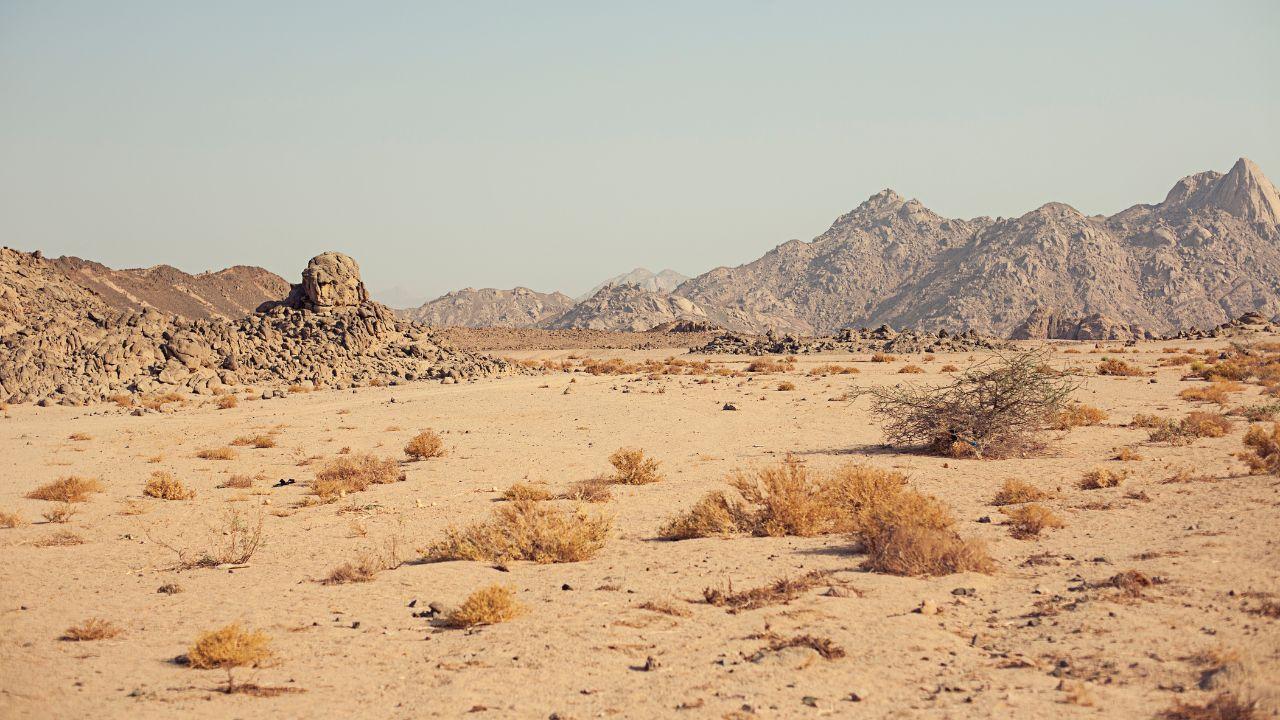
Post by: Zayd Kamal
Deserts are often seen as barren, dry expanses with little to offer, but they play a much larger and more crucial role in our planet’s climate and ecosystems. These arid regions, from the scorching sands of the Sahara to the cold deserts of the Arctic, have profound effects on global weather patterns, biodiversity, and even human life. In this article, we’ll explore how deserts impact global climate and ecosystems, highlighting the interconnectedness of the Earth’s systems and the important role these dry landscapes play in shaping life on our planet.
One of the primary ways that deserts impact the global climate is through their influence on weather patterns. Deserts are often located at the edges of major atmospheric circulation systems, such as the Hadley cell. These large-scale patterns of wind and air movement are responsible for distributing heat and moisture across the globe. As warm air rises near the equator and moves toward the poles, it cools, and dry air sinks over the desert regions, creating arid conditions.
Because of the extreme lack of moisture in deserts, they contribute to the formation of dry air masses that affect weather in surrounding regions. For instance, the Sahara Desert has a significant influence on the weather across Africa, the Middle East, and even parts of Europe. The dry, hot air from deserts can create high-pressure systems that suppress rain, causing droughts and altering precipitation patterns.
Deserts also play a role in regulating global temperatures. During the day, desert temperatures can soar to extreme highs due to the lack of cloud cover, absorbing and radiating heat. At night, the lack of moisture in the air causes temperatures to plummet rapidly, resulting in extreme temperature swings. This phenomenon helps regulate the overall temperature of the planet, keeping the balance between hot and cold zones.
Despite their harsh conditions, deserts are home to unique ecosystems filled with adapted wildlife and plant life. The biodiversity in deserts is a result of the specialized adaptations that species have developed to survive in extreme heat, limited water, and scarce food. These adaptations include nocturnal activity patterns, water storage mechanisms, and drought-resistant features.
Plants such as cacti and succulents store water in their stems and leaves, allowing them to survive during long dry periods. Animals like camels, desert foxes, and lizards have evolved to conserve water and regulate their body temperature in the extreme heat. This unique biodiversity is vital not only to desert ecosystems but also to the health of the planet’s larger ecological systems.
Deserts also act as hotspots for endemic species—plants and animals that are found nowhere else on Earth. These species have adapted so specifically to the desert environment that they cannot survive elsewhere. The preservation of desert biodiversity is essential for maintaining ecological balance and ensuring that these species do not go extinct due to climate change or human activity.
Deserts may seem dry, but they are also crucial to the Earth’s soil and water cycles. While rainfall in deserts is scarce, when it does occur, it has a significant impact on the environment. Desert soils are often rich in minerals and provide essential nutrients for plants. The infrequent rainfall helps to keep these soils intact and prevents them from becoming too leached of nutrients.
Deserts also have an important role in the water cycle. Through a process known as evaporation, water from desert surfaces is transferred into the atmosphere, contributing to the movement of moisture that can eventually lead to rainfall. This process helps to stabilize global water systems and contributes to the distribution of fresh water across the planet.
Additionally, desert landscapes like sand dunes and rocky plateaus can influence the flow of air and water in surrounding regions. The wind patterns created by desert terrain can shift moisture-bearing clouds, affecting the amount of precipitation that falls in nearby areas, often creating microclimates that may support life in otherwise arid regions.
Another significant way that deserts impact global climate is through their role in regulating carbon levels in the atmosphere. Deserts, like all ecosystems, have a natural carbon cycle in which carbon dioxide is absorbed and released through plant life, soil processes, and even the movement of air masses.
In recent years, scientists have also become aware of how desert plants and their soils can store carbon. These ecosystems act as carbon sinks, absorbing carbon dioxide from the atmosphere and helping to mitigate climate change. As temperatures rise and desertification spreads to new areas, this process of carbon sequestration could become even more important in the battle against climate change.
Additionally, desert dust plays a role in global climate regulation. Winds pick up fine dust particles from desert surfaces and carry them across continents and oceans, where they can affect cloud formation and influence rainfall patterns. This dust can also have an impact on the nutrient cycles of other ecosystems, such as forests and oceans.
Climate change poses a unique threat to deserts and the global systems they influence. As global temperatures rise, desertification—where arid land expands and more land becomes desert-like—becomes a more pressing issue. This trend exacerbates the challenges faced by desert ecosystems, as plant and animal species struggle to adapt to ever-more extreme conditions.
At the same time, the spread of deserts can have far-reaching impacts on human populations, particularly in regions where agriculture is dependent on water. As deserts expand, the availability of water decreases, and ecosystems become more fragile. Protecting and preserving the integrity of deserts is crucial in maintaining biodiversity and ensuring that their ecological roles continue to be fulfilled in a changing world.
This article explores how deserts impact global climate and ecosystems, shedding light on the significant role these arid regions play in shaping weather patterns, biodiversity, and the Earth’s ecological balance. Deserts influence global climate by regulating temperature, moisture, and air movement, affecting weather across neighboring regions. They are also home to unique ecosystems with specialized species that contribute to biodiversity. Furthermore, deserts play a key role in the global water cycle, soil processes, and carbon storage, which helps mitigate climate change. As desertification spreads due to rising temperatures, understanding and protecting these regions becomes essential for maintaining planetary health.
The content provided in this article is for informational purposes only. The views expressed do not necessarily reflect those of DXB News Network. Readers are encouraged to consult environmental experts and reliable sources for further details on the topics discussed.
#trending #latest #Deserts #GlobalClimate #Ecosystems #ClimateImpact #Biodiversity #DesertEcosystems #EnvironmentalScience #Desertification #ClimateChange #WaterCycle #Sustainability #EarthScience #DesertConservation #breakingnews #worldnews #headlines #topstories #globalUpdate #dxbnewsnetwork #dxbnews #dxbdnn #dxbnewsnetworkdnn #bestnewschanneldubai #bestnewschannelUAE #bestnewschannelabudhabi #bestnewschannelajman #bestnewschannelofdubai #popularnewschanneldubai

Salik teams up with ENOC to offer smart, secure e-wallet payments at service stations, enhancing customer convenience across Dubai... Read More

“He’s a guy who’s inspired me”: Seth Rollins names Hall of Famer Shawn Michaels as his biggest WWE influence, honoring the wrestling legend.... Read More











Rashid Al Obad Appointed Director General of Shams
Sheikh Sultan issues Emiri Decree appointing Rashid Al Obad as Director General of Sharjah Media Cit

Dubai’s Government Best Practices Series 2025 Highlights Innovation
The Government Best Practices Series 2025 in Dubai focused on government innovation, digital service

Dubai Hosts GenAI Masterclass for Future Family Leaders
Dubai Centre for Family Businesses held a GenAI masterclass to train 24 young leaders in using AI fo

ArtDomain by DXB News Network Opens to Strong Global Response — Applications Begin for A50 and The Art Guild.
ArtDomain by DXB News Network Opens to Strong Global Response — Applications Begin for A50 and The A

Dembele's Goal Gives PSG a 1-0 Win Over Arsenal in Semi-final
Ousmane Dembele scores early to give PSG a 1-0 win over Arsenal in their Champions League semi-final